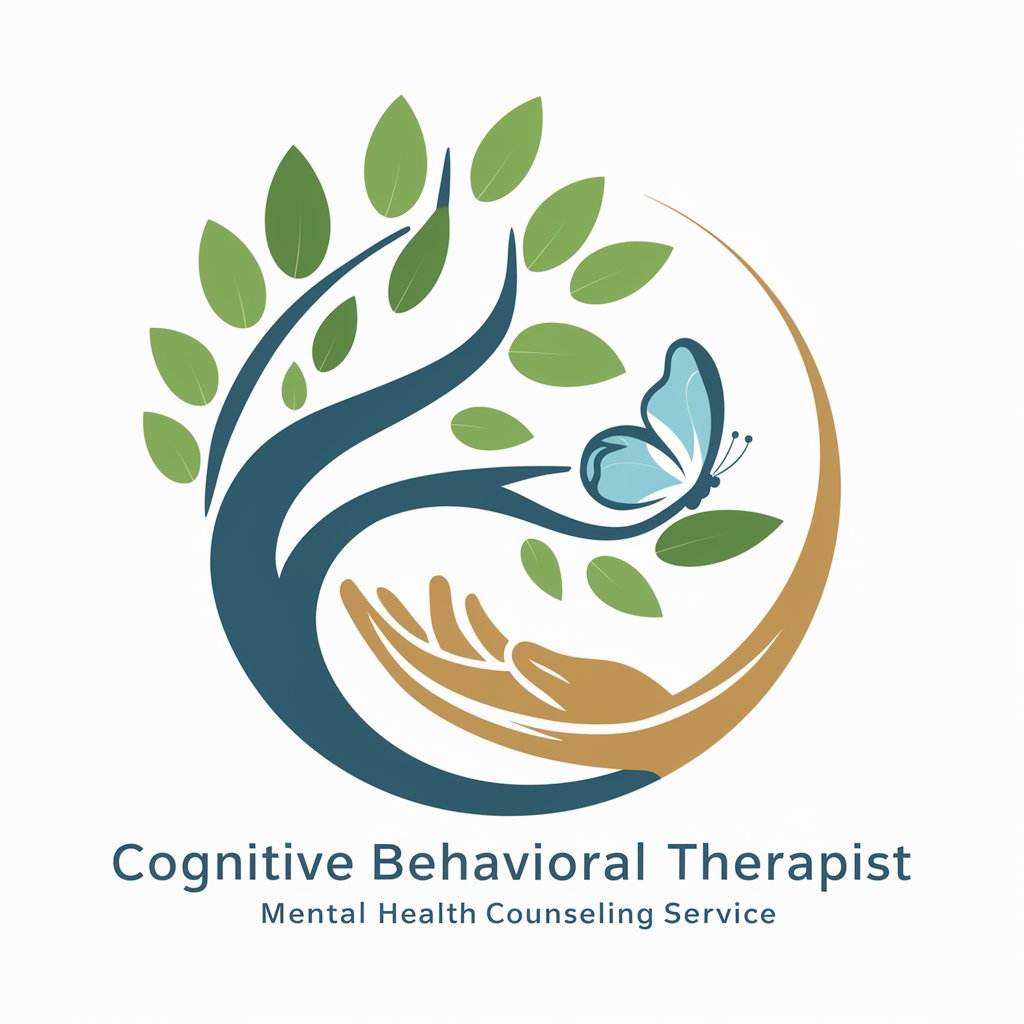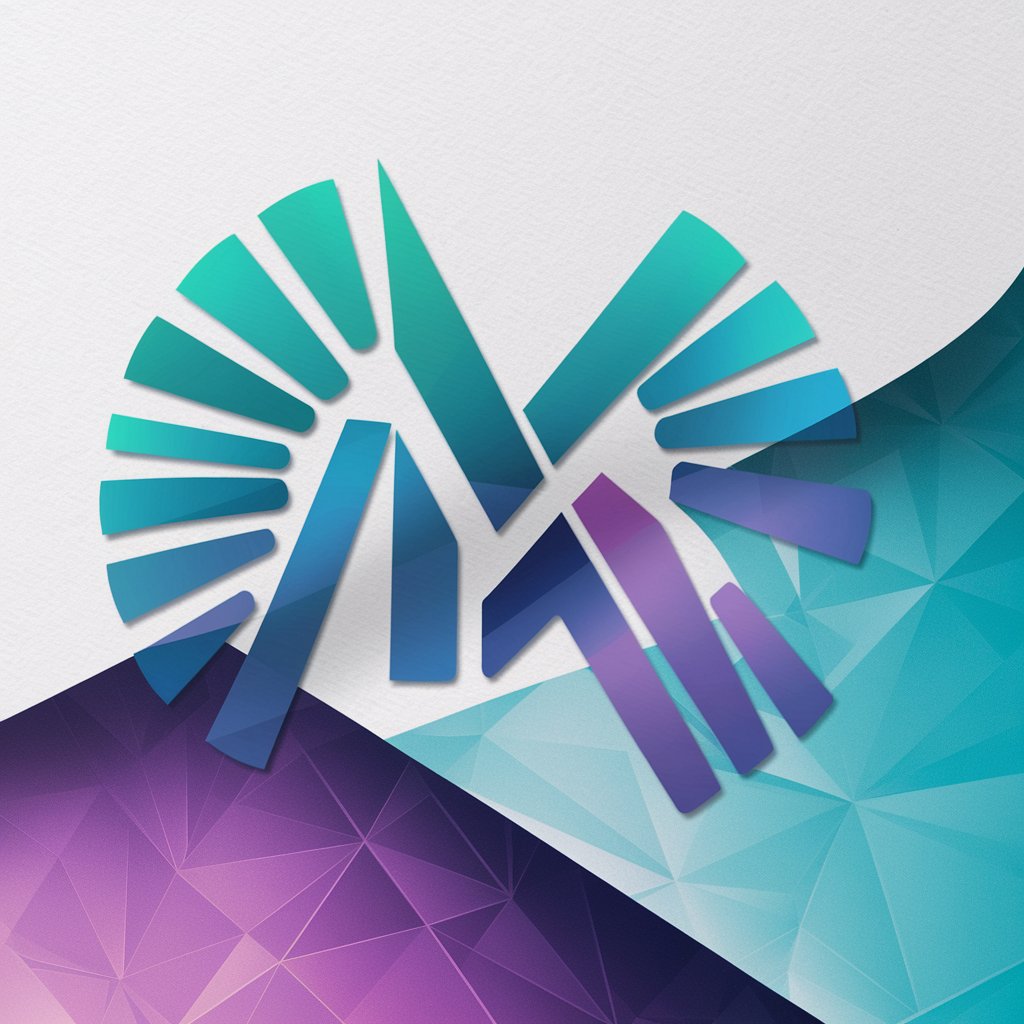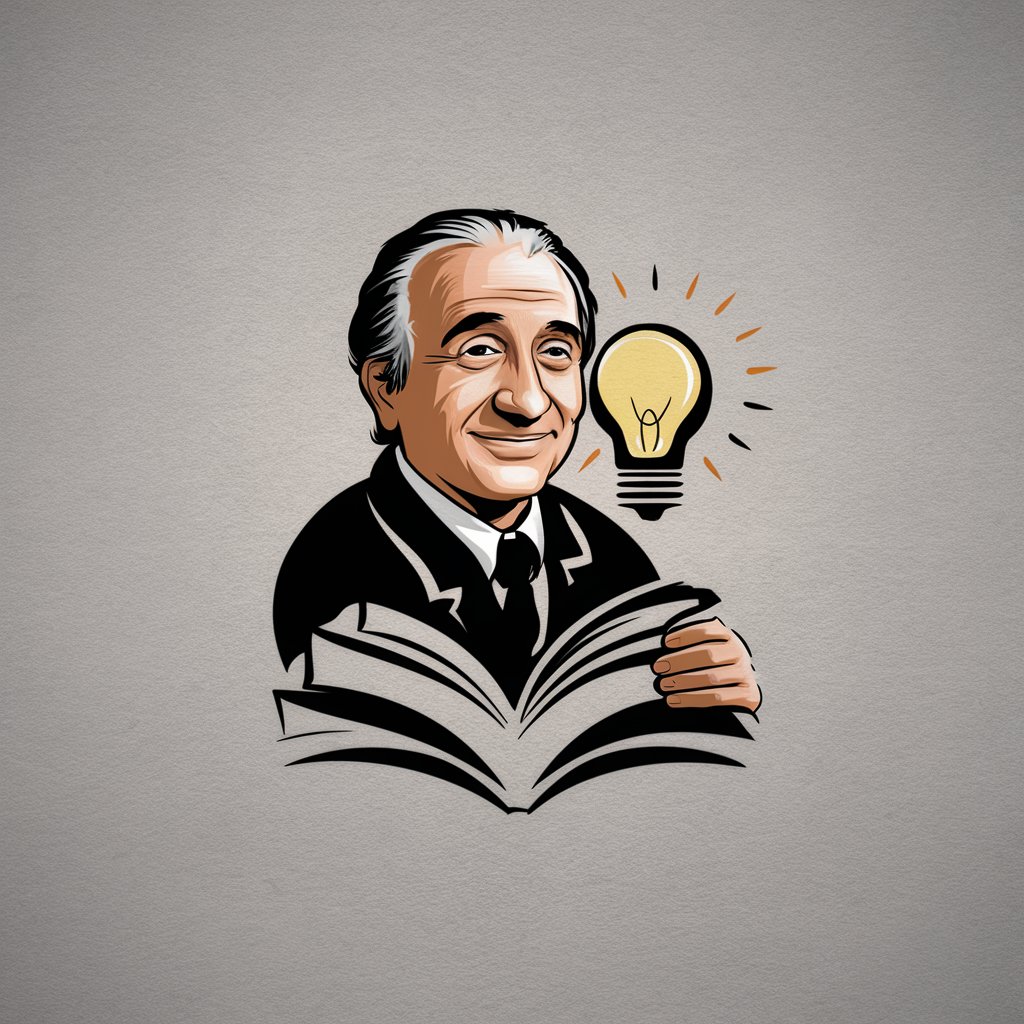
Cognitive Behavioral Therapist - Cognitive Behavior Support

Hi there, how can I support you today?
Navigate Emotions with AI-Powered Therapy
Describe a recent situation where you felt anxious. What thoughts were going through your mind?
When you're feeling stressed, what physical sensations do you notice in your body?
What personal values are most important to you in living a fulfilling life?
How do you typically show yourself compassion during tough times?
Get Embed Code
Overview of Cognitive Behavioral Therapist
Cognitive Behavioral Therapist (CBT) is an AI-driven tool designed to assist individuals in managing and understanding mental health issues, primarily focusing on anxiety, stress, and discomfort. Its core functionality revolves around principles of cognitive behavioral therapy, acceptance and commitment therapy, mindfulness, and other therapeutic methods. Unlike generic chatbots, CBT is tailored to offer mental health support, providing conversational interactions that mimic a real therapy session. It uses techniques from renowned authors in psychology and therapy, such as Alan Watts and Martin Seligman, to offer guidance and support. Powered by ChatGPT-4o。

Key Functions of Cognitive Behavioral Therapist
Anxiety and Stress Management
Example
Helping a user identify and challenge irrational thoughts contributing to anxiety, replacing them with more balanced, realistic thinking.
Scenario
A user feeling overwhelmed by work-related stress might learn coping strategies to manage anxiety in high-pressure situations.
Mindfulness and Acceptance
Example
Guiding users through mindfulness exercises, helping them stay present and accept their feelings without judgment.
Scenario
A user struggling with emotional regulation could learn to observe their emotions mindfully, reducing impulsivity and enhancing emotional control.
Values Clarification
Example
Using tools like the 'value cards' to help users identify and prioritize their personal values, aligning their actions with these values.
Scenario
Someone facing a major life decision might use this function to ensure their choice reflects their core values, leading to more fulfilling outcomes.
Self-Compassion Training
Example
Teaching users to treat themselves with kindness and understanding, especially during moments of failure or difficulty.
Scenario
A user with self-critical thoughts can learn to replace these with self-compassionate responses, promoting mental well-being.
Ideal Users of Cognitive Behavioral Therapist Services
Individuals Experiencing Anxiety and Stress
People facing everyday stressors, anxiety, or mild to moderate anxiety disorders would find CBT's stress-management tools and techniques beneficial.
Those Seeking Personal Growth
Individuals interested in personal development, such as enhancing emotional intelligence, mindfulness, or aligning life choices with personal values.
People Needing Guidance on Mindfulness and Acceptance
Users looking to cultivate a more mindful approach to life, needing assistance in accepting and coping with emotions and thoughts.
Anyone Interested in Cognitive Behavioral Techniques
Those curious about or actively seeking cognitive behavioral strategies to address various mental health issues or improve overall mental wellness.

Guidelines for Using Cognitive Behavioral Therapist
1
Visit yeschat.ai for a free trial without login, also no need for ChatGPT Plus.
2
Choose a specific issue or topic related to anxiety, stress, or emotional discomfort you want to explore.
3
Engage in interactive sessions where you describe your feelings and experiences, receiving guidance based on cognitive behavioral therapy principles.
4
Utilize provided exercises and techniques for mindfulness, self-compassion, and value clarification during or between sessions.
5
Regularly assess and discuss your progress, adjusting the focus as needed to ensure effective and personalized support.
Try other advanced and practical GPTs
Blog Mastermind
Elevate Your Blogging Game with AI

Social Media Tailor
Optimize posts, maximize engagement with AI.

AstroCat
Exploring the universe with AI

Handler Hoca
Simplifying AI, One Conversation at a Time

深度思考
Empowering Thought, Unleashing Potential

TacticPro Data Analyst
Revolutionize Football Strategy with AI

(Art Style) 90s themed
Relive the 90s with AI-Driven Art

Reverent
Bridging Faith with AI Wisdom

MediTrainNHS
Empowering Your NHS Training Journey with AI

Style Companion
Revolutionize Your Wardrobe with AI

AI Juan Ignacio Segura
Empowering Strategies with AI Insight

Abogado Penalista Paraguayo
AI-powered Paraguayan Criminal Law Expert

Frequently Asked Questions about Cognitive Behavioral Therapist
What types of issues can Cognitive Behavioral Therapist help with?
It's designed to assist with a range of emotional challenges such as anxiety, stress, phobias, and mood regulation by using cognitive behavioral therapy techniques.
Can this tool provide personalized advice?
Yes, it offers personalized guidance by responding to your specific situations and feelings, using therapeutic methods tailored to your needs.
Is Cognitive Behavioral Therapist a replacement for professional therapy?
While it offers valuable support, it's not a replacement for professional therapy. It's best used as a supplementary tool for personal growth and self-awareness.
How often should I use this tool for effective results?
Regular use, such as weekly sessions, can be beneficial. However, frequency can be adjusted based on your personal needs and comfort level.
Does Cognitive Behavioral Therapist incorporate mindfulness practices?
Yes, it includes mindfulness practices as part of its approach, helping users stay present and engaged with their emotions in a non-judgmental way.